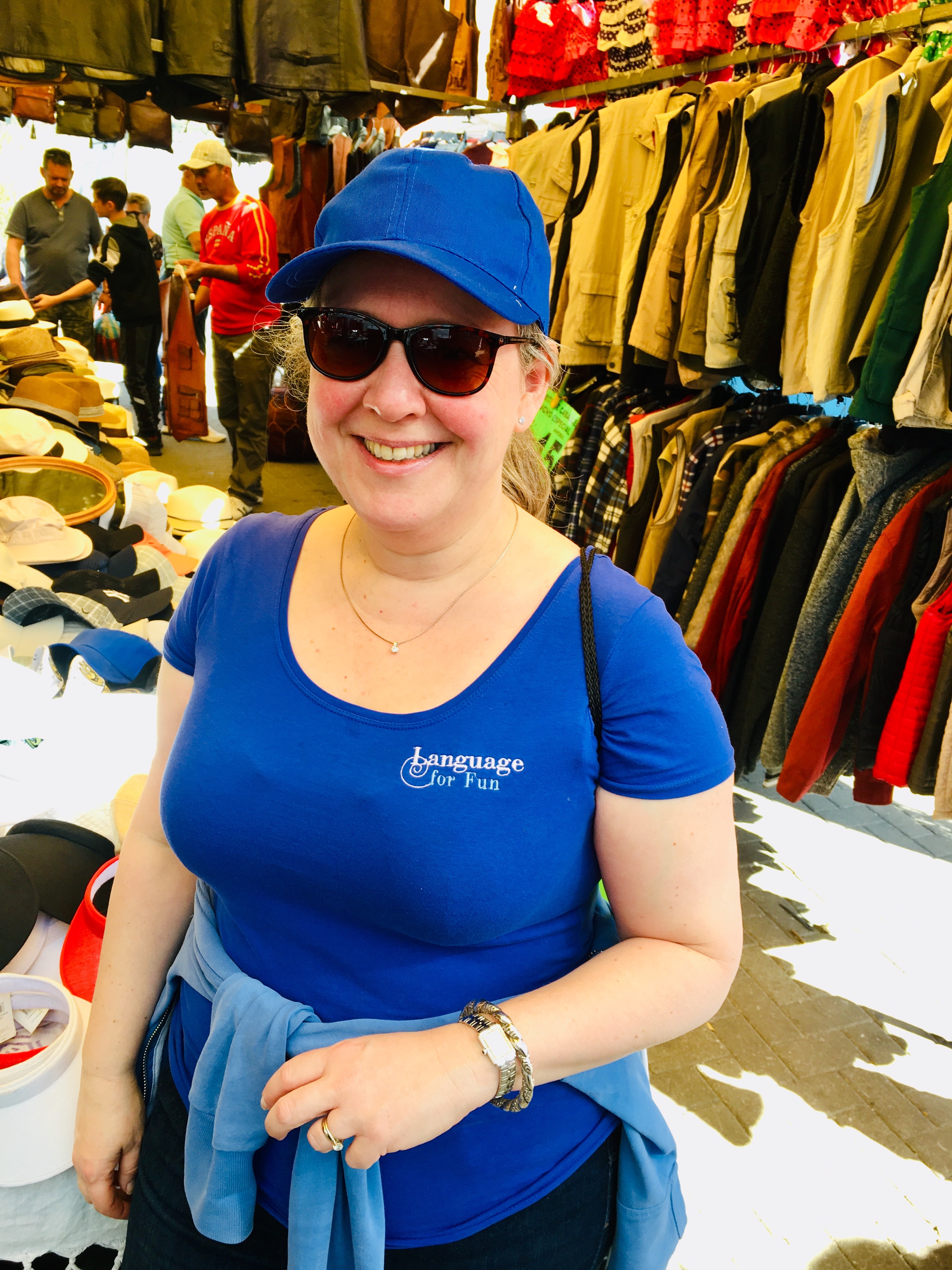I arrived ‘al aeropuerto de Alicante’ (in Alicante airport) dressed for ‘el invierno’ (winter) in an overcoat, woolly jumper, scarf and hat. During ‘la cena’ (dinner), ‘mi madrasta'( my step-mother) lit a wood fire and put a gas heater on for good measure. Between you and I, I slept in most of ‘mi ropa (my clothes) that night as there was no heating in ‘la habitación’ (the room) and even two sets of duvets didn’t quite keep the chill out.
After a lie-in and a delightful ‘desayuno’ (breakfast) of ‘tostadas con tomates’, (toast with tomatoes mixed with ‘ajo’ (garlic) and ‘aceite de oliva’ (olive oil), I decided to walk to the local ‘rastro’ (market) ‘a unos treinta minutos a pie de la casa’ (about 30 minutes from the house) wearing a t-shirt, a sweatshirt and my trusty woolly scarf. ‘Unos minutos más tarde’ (a few minutes later) I had taken off the scarf and sweatshirt and by the time I arrived ‘al rastro’ (at the market) I was ‘el color’ (the colour) of a lobster. I had completely forgotten that”‘Sólo los perros locos y los ingleses salir al sol del mediodía”(only mad dogs and Englishmen go out inthe midday sun).
So instead of enjoying the market and hunting for a few souvenirs to take home, I went in to survival mode. ‘Primero’ (first of all) I went in to ‘el supermercado’ to buy some ‘loción bronceadora‘ (suntan lotion). As I forked out the ‘diez euros’ 10 euros I tried not to think of all the half-usedbottles that were sitting in various cupboards ‘en mi casa’ (in my house). ‘Después’ (next) I went in hunt of ‘un sombrero (a hat). “¿Cuánto cuesta esto? I asked despite ‘el anuncio grande’ the large sign that said 4 euros. ¡Nueve euros! (9 euros) the guy replied quick as a flash, pointing to the sign on the other side ‘de la tienda’ (of the stall). ‘Es muy caro’ (it’s very expensive) I exclaimed! ‘Ocho euros para ti’ (eight euros for you) the guy replied. ‘Ocho euros son todavía muy caros’ (8 euros is still very expensive) I sighed as I tried not to think of the 20 caps that we have in draws at home. ‘Seis euros’ (six euros) said ‘el hombre’ (the man). ‘No – quatro’ (No, four) I held my ground. He laughed and we had a long and stilted chat about the fact that I was ‘un guiri’ (a foreign tourist) and that he was ‘de aquí’.
I spent most of “la tarde” (the afternoon) chatting with stallholders and listening in on other peoples’ conversations. It was “lleno de gente” (crowded) so it wasn’t rude to follow people within hearing distance.
I walked back in “la puesta del sol” and arrived just in time for ‘una copa de vino blanco fresco’ (a cool glass of white wine) and “tapas“. “Un día perfecto” (a perfect day).
